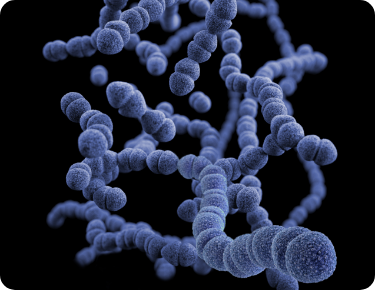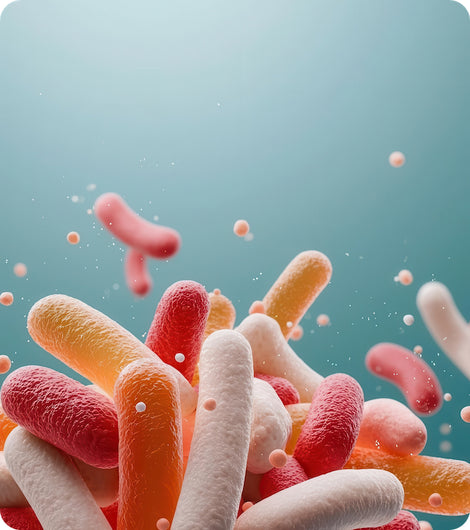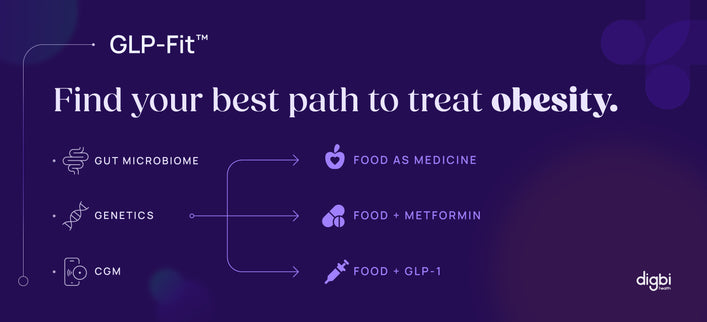Digbi Health Precision Care Webinar Series with Dr. Eldred Taylor, Taylor Medical Group with Ranjan Sinha, CEO - Digbi Health
Webinar Date: 16 Oct 2019
Webinar Link: https://vimeo.com/367276027
If you’ve ever thought of drowning your troubles in a sugary soda, or tiptoed down to the fridge to finish off leftover cake in the middle of the night, you’re not alone. Carb cravings, especially sugar cravings, are real, and giving in to them literally sabotages our health. In order to beat cravings and reprogram your mind towards following a healthy diet, you need to understand how the mind-body connection works, and what key factors, apart from overindulgence, are at play in weight gain.
Everyone knows the standard rules of weight loss: reduced number of calories, more exercise, healthy food, periods of fasting, etc. But some just don’t see the light at the end of that tunnel. Moreover, what worked like a charm for one person may not work for another. When it comes to weight loss, we are all different.
There is a strong connection between our state of mind and the kind of food we crave in certain situations. You know you shouldn’t be eating something, but you just can’t help yourself because, in a way, your body is trying to “self-medicate” itself during moments of high stress.
It all starts with stress.
Danger, stress and system imbalance
For our body to function optimally, our systems need to be in balance, in a state of “homeostasis.” Our long evolutionary history has wired our body for survival, by means of the “fight or flight” response to stress or danger. Back when we were still cavemen, the fight or flight response would be triggered upon coming face to face with a sabre-toothed tiger, or a venomous snake. Furthermore, a reasonable amount of time could pass before a similar life-threatening situation arose, allowing the body to return to a “rest and digest” state.
Sadly, in this day and age, the stressors have changed and grown immensely in number. Missing a bus on the way to an important meeting, prolonged financial troubles, listening to the news, or being a long-term caregiver to a family member, for example, could trigger the same stress response in the body. With our body in a chronic state of stress, the fight or flight conditions in the body remain triggered. With no chance to return to the rest-and-digest state, the result is overarching anxiety, difficulty sleeping, poor energy levels- often culminating in depression.
How it works: The key players
The Sympathetic and Parasympathetic Nervous Systems
Image by Digbi Health
The body’s sympathetic nervous system is the regulator of this fight or flight response. When faced with danger, there is a surge in adrenaline, which should go back to normal when the stressor is gone. With the stressor gone, the parasympathetic nervous system then takes over to restore the “resting state” of balance, or homeostasis.
The mechanism of stress
Image by Digbi Health
The effect of stresses, even small ones like changes in the blood sugar (blood glucose) levels, or potassium levels, can be picked up when measuring Heart Rate Variability (HRV). HRV picks up both sympathetic and parasympathetic beats, which should be in balance. However, a lot of patients show a lot of sympathetic activity, and not enough parasympathetic, because the body is in a chronic state of stress.
Image by Digbi Health
Neurotransmitters
Neurotransmitters, as the name suggests, carry messages between the sympathetic and parasympathetic nervous systems, from one nerve cell to another. Neurotransmitters are of two kinds: Excitatory neurotransmitters and Inhibitory neurotransmitters.
Image by Digbi Health
When the body is in a chronic state of stress, it makes too much of excitatory neurotransmitters, and not enough of the inhibitory ones. This shift in favor of making too many excitatory neurotransmitters is due to the body’s need for self-preservation: It wants to make you aware of the stress coming upon you, to ensure you can recognize it and act upon it.
The relationship between food cravings, stress and serotonin
Food cravings and depression are often the byproduct of neurotransmitter level changes that are triggered by stress. When you eat carbs like white bread, sweets, sugary sodas, it boosts the levels of feel-good chemicals like serotonin in your brain. The body then raises insulin levels to deal with these high glucose levels. Insulin actually increases serotonin levels, but this increase is short-lived as blood glucose levels after consuming simple carbs also drop pretty quickly. In other words, the quick high is followed by a quick low which prompts people to eat even more carbs, setting off the cycle again. As a result, insulin resistance develops over time.
Serotonin and GABA: Parasympathetic neurotransmitters and their role:
Image by Digbi Health
Serotonin
Low serotonin levels manifest in the form of anxiety, depression, changes in appetite, and several apparent mental health issues listed above, because the body is wholly tipped in favor of the sympathetic nervous system, and the ill-effects accumulate. Sometimes, when there is a deficiency of the precursors to the neurotransmitters, sufficient inhibitory (rest-and-digest) neurotransmitters are not formed. To offset this, you should eat enough proteins to provide your body with the necessary amino acids to manufacture these neurotransmitters. Amino acids are components, ‘building blocks’ of protein and vital to maintaining healthy neurotransmitter levels.
Proteins also give a better feeling of satiety than carbs. When you are low in serotonin in your gut, you feel low in your brain. Serotonin influences gut motility; low levels may result in constipation. Serotonin also suppresses appetite, so low levels of it make you want to eat more.
Serotonin levels are often low during menopause, leading to “low feelings” and weight gain. Adequate estrogen levels benefit serotonin sensitivity. If enough estrogen is present even if serotonin is low, that estrogen increases sensitivity to even those low levels of serotonin. With low levels of estrogen, as in menopause, that small advantage is lost.
GABA
This other important parasympathetic neurotransmitter is also referred to as the “off switch for stress.” Insomnia causes cortisol levels to rise, and weight gain often results. When blood pressure rises in response to stress, GABA is instrumental in bringing it down. The hormone progesterone increases GABA and helps improve sleep patterns. GABA also increases stomach acid secretion to aid digestion.
Balancing hormones
There should be a balance between estrogen and progesterone and hormone balance is very important in weight management. With balanced hormones, people sleep better and control cravings better. Progesterone helps to burn fat for energy. Estrogen slows down metabolism and thyroid function by blocking the thyroid hormones, therefore too much estrogen and not enough progesterone makes you gain weight. Imbalanced hormones or neurotransmitter levels, or adverse changes in your gut biome are often more powerful than any diet or exercise, and put a block on weight loss.
All neurotransmitters act in the same brain area as Benzodiazepines but instead of the drug, it is better to go to the main source of the problem/ imbalance, and find out whether it is genetic, or hormone-driven. Your hormone levels can be measured through saliva testing.
The role of the stomach and intestines
The hydrochloric acid in the stomach liquefies food, kills harmful bacteria and begins the process of protein digestion. As you grow older (40s onwards) the acid in your stomach starts decreasing. As these periods in life are often filled with chronic stress, and with less stomach acid, undigested food remains in your stomach longer than it should, eventually getting pushed towards the esophagus (food pipe), resulting in that all-too-familiar feeling of heartburn. However, overuse of antacids has been shown to disrupt the stomach’s natural settings.
Less stomach acid also means that sometimes the harmful bacteria that should be killed, don’t get killed before the food passes through into the intestines. These bacteria disrupt the balance of the “good” bacteria in your intestines that are vital to the small intestine’s ability to absorb nutrients. A “leaky gut” syndrome may develop, making it all the more difficult to lose weight.
Image by Digbi Health
The Gut Microbiome:
The intestines contain a large number of highly diverse bacteria, which form their own ecosystem. This gut “microbiome” is now recognized to be an organ in itself, and maintaining the balance and diversity of intestinal bacteria is vital. Diversity of gut bacteria is 20 times more than our cells, and gut biome genetic material comprises 95% of all the genetic material found in a human being. “Good” bacteria i.e. “probiotic” bacteria also control the growth of bad bacteria. Some byproducts or metabolites of the bad bacteria increase cardiac risk or gut inflammation. On the other hand, good bacteria help you fight diabetes, break down environmental toxins like pesticides, and play a major role in detoxing our system.
Experts recommend getting your gut biome tested to find out its bacterial composition to find the right probiotic(s) supplements for you. Probiotic supplements are like seeds the gut environment needs to be optimal for them to take root and colonize.
A word on synthetic sweeteners
Synthetic sweeteners are designed not to metabolize in the body, but end up accumulating in the lower gut where they are fodder for a certain kind of bacteria that in turn produce chemicals that affect liver; increase risk of diabetes and prevent weight loss.
Gut biome, stress and how they are co-mingled
Obesity is a misunderstood condition: people who are obese are often thought to have poor self control when it comes to eating. However, it is more than that. It is your own genetic risk profile and your microbiome risk profile interacting with environmental risk factors, the type and the amount of food you consume, your exercise and sleep habits; all of this impacts your body composition and weight. Our metabolism is also a major player in regulating weight.
R 23 chromosomes are the genetic “instruction manual,” with 3 billion ‘TGAC’ gene letters. For a small fraction, some changes happen that alter your system and affect how you respond to a particular food, diet, etc.
Genes and cravings
A gene that resides on the 23rd chromosome, the MAOA Gene, has the important function of metabolizing the neurotransmitters dopamine, norepinephrine (the stress response) and serotonin (which brings about relaxation and satisfaction).
Image by Digbi Health
MAOA genes govern how fast you metabolize these stress neurotransmitters. A fast version of MAOA clears out serotonin fast, creating a demand of serotonin. This leads to stress cravings of quick carbs. Another symptom is restlessness, not being able to sleep very well, and waking up in the middle of the night craving a sandwich or potato chips.
Stress and aging:
Hydrogen peroxide is a byproduct of fast serotonin clearance and a major contributor to aging. If your MAOA gene is very fast, your body will not produce enough glutathione (an antioxidant) to counter this hydrogen peroxide. Many people for whom life has been difficult, either due to one stressor or a series of stressors, appear to age very fast and start showing grey hair. The harmful effects of hydrogen peroxide, and aging, can be countered by including antioxidants like turmeric in your diet.
Q & A Section:
Q. Where can I read more information about heartburn medication and what it does in the stomach vs. what should happen in the gut and bacteria?
Proton pump inhibitors (PPIs) are common medications within the practice of gastroenterology. You can read the study I referenced in the webinar here.
Q. What Is CBD and is it good to have?
CBD stands for cannabidiol. It is the second most prevalent of the active ingredients of cannabis (marijuana). While CBD is an essential component of medical marijuana, it is derived directly from the hemp plant, which is a cousin of the marijuana plant. You can read more here.
Q. Can you talk more about the seed cycle to balance hormones?
Seed cycling is a growing trend claimed to balance hormones, boost fertility, and ease symptoms of menopause. It involves eating flax, pumpkin, sesame, and sunflower seeds at different times of the month to balance certain hormones. It is a naturopathic remedy that aims to balance estrogen and progesterone levels by eating flax and pumpkin seeds during the first half of the menstrual cycle and sunflower and sesame seeds during the second half. Speak to your healthcare provider to learn more.
Q. Are stevia, erythritol and xylitol considered in the category of artificial sweeteners discussed in this forum? What sweetener would be best to use?
Erythritol and xylitol are ok to use in moderation. Here is a good source to read.
Q. Do you subscribe to the condition of adrenal fatigue?
A.Yes, click on these two links to learn more:
The Best Ways to Relieve Stress ...
Could you be suffering from adrenal fatigue, take the quiz?
Q. What is Homeostasis?
For our body to function optimally, our systems need to be in balance, in a state of “homeostasis.” Our long evolutionary history has wired our body for survival, by means of the “fight or flight” response to stress or danger. When the danger has passed, the body needs to be restored to the state of balance, or homeostasis, to be rid of the stress chemicals and be in a “rest and digest” state, until faced with the next dangerous or stressful situation.
Q. How does stress affect the human body?
A.Chronic stress affects our body badly. It leads to many physical and mental health symptoms due to the continual and elevated triggering of the “fight or flight” response, and also results in rapid aging.
Q. Why is the overuse of antacids bad?
A. As we grow older, our stomach produces less and less of the hydrochloric acid needed to break down food into its nutrient components, for efficient digestion. The other function of hydrochloric acid is to kill harmful bacteria before they reach the gut and alter composition, and thereby the ecosystem of the gut bacteria. Overuse of antacids will further decrease stomach acid production, resulting in poor digestion, leaky gut, and other health issues.
Q. How do I know my serotonin level is low? Do I get it from food?
A. Serotonin can be boosted by consuming proteins and the stomach’s ability to digest the amino acids found in proteins. Tryptophan, found in turkey is a precursor for serotonin. Taking 5-HTP supplement is the other way.
If you have sugar cravings, your serotonin is probably low but this can be confirmed via lab tests.
Q. My friend lost a lot of weight on a low-carb diet, but when I tried it, I did not get the same results. Why is that?
Weight gain and loss is a complex play of stress, neurotransmitter levels, hormone profiles physical and mental health, underlying conditions, genetic risk profile, gut bacteria composition and so on. When it comes to weight loss, our metabolism is also a factor, and it can vary from person to person. So what worked well for one person may not work so well for another.
Q. Why are synthetic sweeteners bad?
A.Synthetic sweeteners are designed not to metabolize in the body but end up accumulating in the lower gut where they are fodder for a certain kind of bacteria that in turn produce chemicals that affect the liver, increase the risk of diabetes and prevent weight loss.
Q. I am undergoing menopause. How do I get rid of the “fear feeling,” negative thoughts and the overeating that results?
A.With not enough serotonin and GABA, your Sympathetic nervous system is constantly turned on. Take tryptophan, get a hormone profile done. Hormones need to be in balance (in menopause, there is a hormone imbalance, particularly, there is not enough progesterone for GABA). Hormone imbalance in addition to serotonin imbalance can contribute to these feelings. Dial it back a little, work on improving your gut biome, get hormones balanced, intake amino acids during this crucial time.
Q. What proteins can a vegetarian eat?
A.Most vegetarians get their protein from beans. But beans are high carb and you have to balance that out. You can take pea protein supplements and other plant based proteins.
Q. Where can I learn more about stress and how it affects us?
Stress is connected to health and affects all systems. Several stressors right in a row, or one big stressor have often led to disease conditions in people. You may want to read the book “The Stress Connection” by Dr. Eldred Taylor to learn more.
Q. What do the gut microbiome do?
We now know that the gut microbiome helps digest food, protects against the overgrowth of harmful bacteria, regulates our immune system and even helps with the assimilation of certain vitamins from the food we eat. Some studies also show that the gut biome may have a role to play in cravings and regulating our hunger, and food preferences. A healthy gut biome is key to better health.
Q: How to improve gut microbiome?
Eat an assortment of fruits and vegetables depending on seasonality. Get adequate fiber. Avoid snacking on processed foods as much as possible. Opt instead for fermented foods that are naturally probiotic. Antibiotics, while necessary to fight infection, can destroy a healthy gut biome when taken indiscriminately.
Q. What is the role of genetics in obesity?
Depending on the combination of genes that make us up, one form of exercise may work better for us. Some of us have genes that cause our muscles to respond better to high-intensity cardio, while others have genes that help our muscles gain the most from endurance-based workouts. Likewise, the foods that help us lose weight and those that cause no change are also dependent on our genes.
Q: Is there a gene for obesity?
There isn’t a single gene solely responsible for obesity, but a combination of genes can determine how fat is stored and deposited in the body. Along with genetic causes, the environment and lifestyle factors also have a major role to play in obesity.
If you have any questions about Digbi Health, please feel free to reach out to us at hello@digbihealth.com.

















